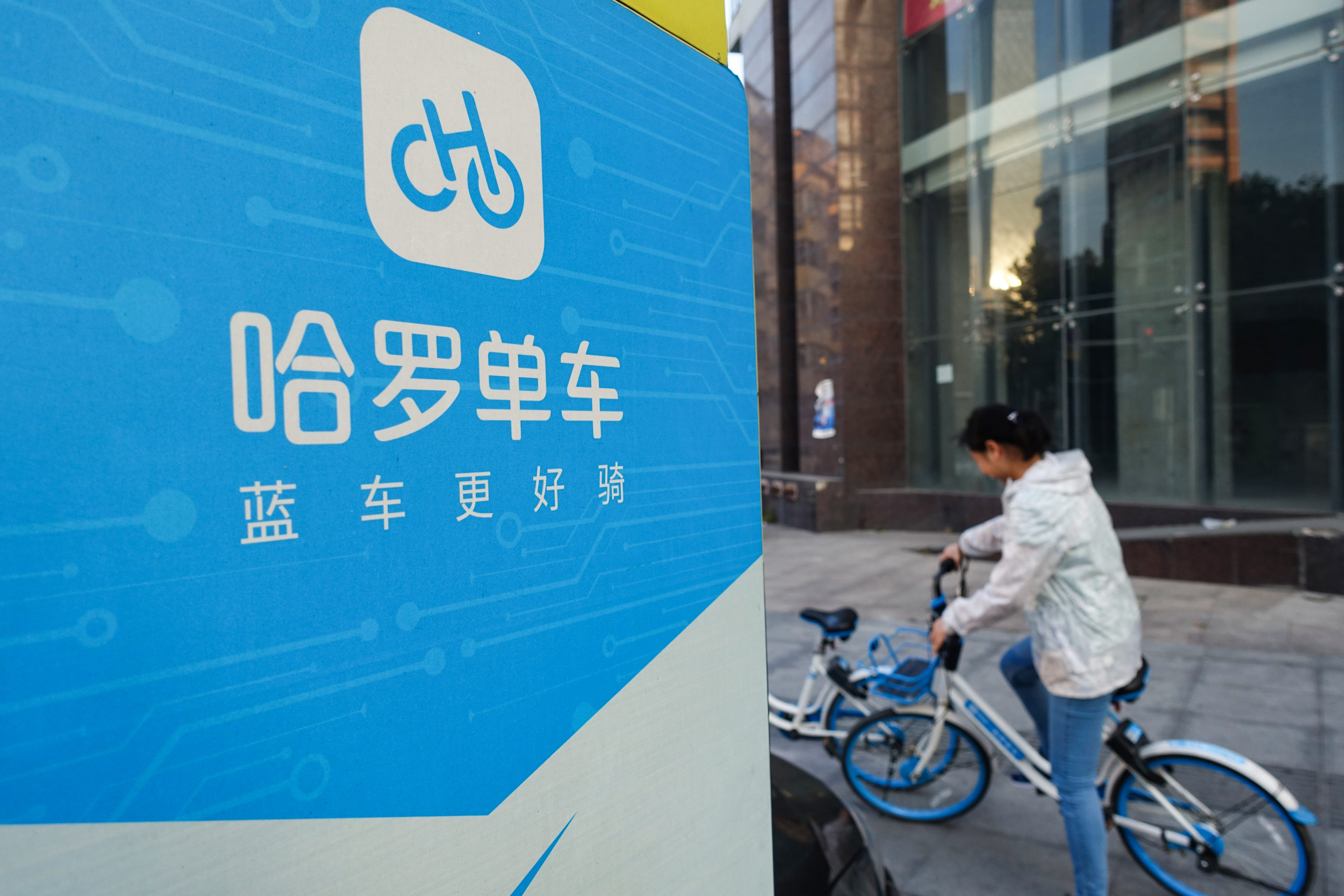Bike sharing’s not dead: Alibaba-backed firm files for U.S. IPO
One of the last surviving bike-sharing startups — Hello — filed for U.S. IPO as it expands to car-hailing, hotel booking, ecommerce, and beyond.

One of last standing companies from China’s bike-sharing bubble, Hello Inc, has filed for a U.S. IPO, Bloomberg reported.
Hello, valued at $5 billion after its last round of fundraising at the end of 2019, is expected to raise as much as $1 billion in the IPO. The company is reportedly working with China International Capital Corp., Credit Suisse Group AG, and Morgan Stanley for the listing.
Only a few bike-sharing companies survived the industry’s financial crisis four years ago, and the three major surviving players are backed by Alibaba, food-delivery leader Meituan, and ride-hailing giant Didi Chuxing.
- Different from bike-sharing in western cities like New York or London, where rented bicycles need to be returned to docks fixed to the ground, Chinese companies equipped their bikes with digital locks and GPS trackers. Users typically need to pay $15- $50 of deposit before they unlock the bikes using their mobile phones and pay around 1 yuan ($0.15) for each 30-minute-long ride.
- Ofo, the first startup in the bike-sharing field, raised a total of $2.2 billion in nine rounds of financing and deployed tens of millions of its bumblebee-yellow bikes in first- and second-tier cities across China, before it fell into financial problems in early 2018. Dài Wéi 戴维, who founded Ofo in 2014 as a student in Peking University, was put on a government blacklist for unpaid bills, and millions of riders rushed to its Beijing headquarters demanding for deposit refunds.
Major bikesharing players ran out of operating cash from late 2017 to early 2018. The low profitability from rent fees, slower cash input from new user deposits, and the high cost of replacing broken or damaged bikes, drove them into debt, or into the arms of China’s tech giants. Ofo is still $2 billion in the red and appears no longer in operation; its main competitor, Mobike, was acquired by Meituan in early 2018. Didi Chuxing’s bike sharing arm Didi Bike, or Qingju, was created from the wreck of bike-sharing startup Bluegogo.
Hello survived, thanks to its major investor Ant Group’s deep pockets and efforts to expand services.
- Founded in 2016 as Hello Bike, the company was a latecomer to bikesharing, so it chose to focus on second- and third-tier cities where there was less competition.
- Thanks to its affiliation with Ant Group, Alibaba’s fintech unit, Hello waived deposits (in Chinese) for users that had good scores on Ant’s personal credit ranking system, Zhima Credit. The move helped Hello to surpass (in Chinese) the daily active users of Ofo and MoBike combined in early 2018.
- Hello continues to explore new businesses, including electric bike-sharing, which the company started in 2017 and now reportedly dominates the market, and a broad range of transportation services such as taxi-hailing and ride-sharing. The company further expanded (in Chinese) its services to delivery, hotel booking, and ecommerce in the past year.
Heightened risk
Hello’s IPO comes as the Chinese government tightens regulations on ride-sharing companies. China’s Ministry of Transport last December summoned (in Chinese) ride-hailing providers including Hello and Didi Chuxing’s Dida, and warned against illegal car-sharing services and safety risks. Hello earlier in 2019 was fined (in Chinese) 50,000 yuan ($7,699) by the Beijing transport authority for illegally deploying bikes in the city.
Fintech companies are also under regulatory pressure, so Hello might find that some of the previous opportunities that came with its links to Ant Group are now saying bye-bye.






